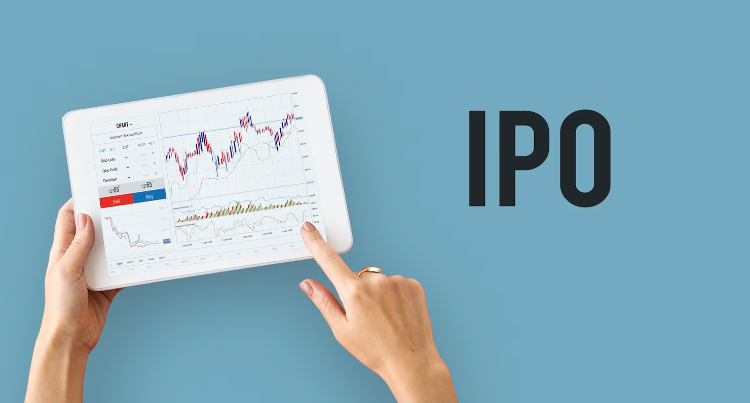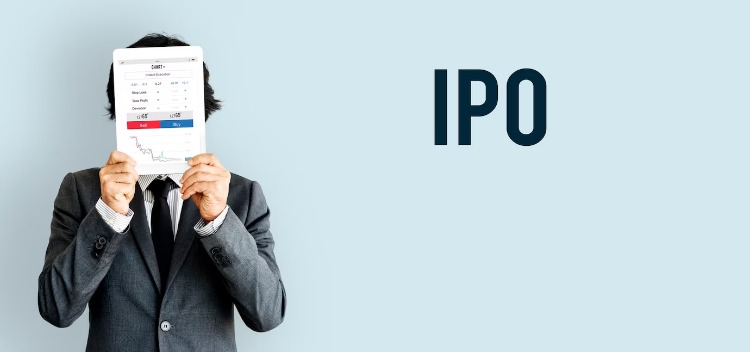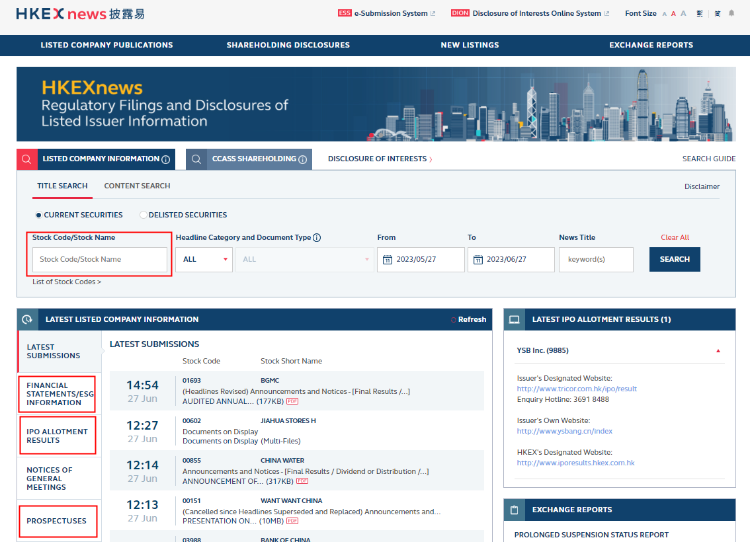FAQ about HK IPO: You should not miss out before you apply!
Do you want to join the Hong Kong IPO game?
Before you do, there are 6 essential questions and answers you need to know. So, without further ado, let's take a look!
1. How long does the IPO process in the Hong Kong stock market take - from application to the announcement of IPO allotment, and investors trading the allotted shares?
The process for a company to be listed begins with the submission of the IPO application form to the Hong Kong Stock Exchange, which will take about half a year for hearings and roadshows. As for IPO subscription, listing, and trading of the allotted shares, it will take 1 to 2 weeks.
- IPO application
At the issuance stage, the company will determine the final issue price based on market conditions and the subscription intentions of the investors. In Hong Kong, placement and public offering are the main methods of issuing IPOs.
M+Global offers two subscription methods: cash and margin financing. For cash subscriptions, M+ Global charges a handling fee for each transaction. You can also opt for financing subscriptions to increase leverage if you have insufficient cash available. As an example, if you have HKD20,000 and plan to put up a 5-fold margin, your total fund amount will become HKD100,000, of which HKD80,000 is lent to you by M+ Global.
Please note that M+ Global also charges a fee for margin financing subscriptions and that the entry fee will be refunded to your account if you fail to receive any allotment. However, the handling fee and margin interest will not be refunded.

- Announcement of allotment results
After the subscription period, the funds will be frozen. If a financing subscription is applicable, interest will be calculated until the day before the announcement. Once the allotment results are announced, you will be updated via email or SMS, or you can check your account position via the M+ Global app.
Please note that public offering accounts for 10% of the total issuance of the IPO, and international offering accounts for 90%. As retail investors, we are only eligible for subscribing to 10% of the total issuance, which is a considerably large number.
- Grey market trading
The grey market is an over-the-counter market. In Hong Kong, it is generally conducted for pre-listing transactions of an IPO and carried out after the closing of the trading day before the listing of the IPO. Hong Kong stock trading is matched through the Hong Kong Stock Exchange system during trading hours. However, grey market transactions do not go through the Hong Kong Stock Exchange but the internal system, which is provided by some securities companies for quotation matching.
- Listing of the company
This happens normally on the trading day after the IPO allotment, in which investors can start trading the shares in the secondary market. You can also search on the company’s website for more information disclosure.

2. Which institutions endorse IPO listing in Hong Kong? Are they reliable?
If a company plans to go public, it needs to work with investment banks, which can assist in the overall planning and coordination during the listing process, including formulating financing plans for the company, fulfilling due diligence, reviewing the company's prepared profit and cash flow forecasts, carrying out roadshows, pricing the company's stock issue, writing prospectuses, and more.
Among them, the underwriter and the sponsor play a crucial role. Most are well-known domestic and foreign investment banking institutions licensed in Hong Kong. The IPO underwriters of a company disclosed by the Hong Kong Stock Exchange include big investment banks, such as Goldman Sachs and HSBC, as well as Merrill Lynch, Morgan Stanley, BNP Paribas, and CICC.
These are the most critical institutions in the entire listing process, acting like the caretaker of the listed company. They nurture and experience the ups and downs of the process together with the company. Therefore, with the endorsement of these well-known institutions, you won't have to worry about the business risks of the listed company.
3. If I get an allotment, how many shares does that include?
At least one board lot will be given to those who have successfully got the allotment. One board lot comprises 100, 500 or 1000 shares, depending on the proportion of each stock. The biggest individual investor in HK IPOs with the most lots is called the "top mallet".

4. How to gain short-term profit after getting an allotment?
Short-term investors who have subscribed to HK IPOs and managed to get an allotment have two trading options:
- Sell during the grey market period of the trading day before listing.
- Sell on the day of listing.
What is grey market trading? It mainly exists in the HK stock market, and is an informal trading market organised by securities firms from 4.15pm to 6.30pm on the trading day before the official listing of new shares. The shares can only be sold when it is listed without a grey market.
In addition, those who subscribed to HK IPOs but did not get an allotment can also buy potential stocks in the grey market and sell them when they are listed. The grey market provides an additional investing option for IPO investors.
The grey market can reflect the day’s investor sentiment to a certain degree. In general, if the grey market goes up, IPOs will also rise. If the grey market falls, IPOs are likely to dip. However, the grey market also has limitations and may not fully reflect the situation of the entire stock market.
5. How to check IPO information disclosure, including its prospectus?
Apart from visiting the investor relations section of a company's website, you can check out HKEX news at https://www.hkexnews.hk/index.htm.
This website specifically discloses information on listed companies, prospectus of IPOs, and final allotment results, while also functioning as a platform to inquire about the sales and allotment of IPOs. If you want to find out the historical disclosure information of a company, simply search for the desired time period.
You can determine whether a company is worth investing in based on its prospectus and other disclosures.

6. With the current HK stock market experiencing a downturn, will I get good returns by subscribing to HK IPOs?
Historically, there have been periods in the HK stock market when the IPO market performed exceptionally well, even when the overall market was in a decline. Here are some examples:
- During the global financial crisis in 2008, the HK stock market suffered badly. While overall market performance was poor, 42 companies were listed in HK that year, and 21 of the IPO issue prices rose by more than 50%, with a relatively high profit. According to data from Wind, the average yield of IPOs in HK that year was 15.7%.
- 2012 and 2013 were the golden age of the HK IPO market. In 2012, the IPO market bucked the trend and rose. In 2013, it hit a historical peak. In the past two years, 240 companies were listed in the HK IPO market, setting a record high. Among them were many successful IPOs with good returns. According to data from Wind, the average yield of IPOs in HK was 4.4% in 2012, and about 24.2% in 2013.
- In 2020, the HK IPO market was not as active as it was in 2012 and 2013, but still showed strong resilience and adaptability. Despite the impact of the Covid-19 pandemic on the global economy, some high-quality companies were listed in the HK IPO market. According to data from Wind, the average yield of new IPOs in HK in 2020 was about 11.1%, which was higher than the average yield of about 7.1% in 2019.
Please note that the return rate of IPOs is a relatively high-risk investment strategy. Investors should be rational and prudent when making investments and carefully consider multiple factors, such as a stock's financial status, business model, industry development trend, and market environment. This will help to reduce investment risks, increase investing opportunities, and gain higher returns.
Finally, stay tuned for future articles where we'll be sharing more important information on this topic.
Exploring Hong Kong IPO Subscription through M+ Global, Read More:
1. Get Ready to Profit With HK IPO, Coming Soon on M+ Global
2. Discover Global IPO Opportunities: Cracking the Investment Code of HK IPOs